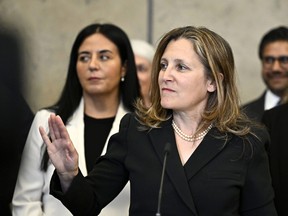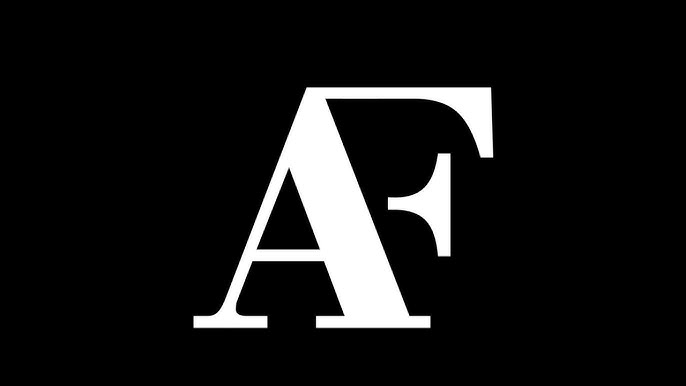Kim Moody: For those who believe the messaging and think it is necessary to solve income and wealth inequality, think again.
Reviews and recommendations are unbiased and products are independently selected. Postmedia may earn an affiliate commission from purchases made through links on this page.
Article content
In a blaze of rhetoric that partisan politicians and their followers would be proud of, Finance Minister Chrystia Freeland finally released some of the legislative details about the proposed change to the capital gains inclusion rate from the current 50 per cent to two-thirds for corporations and most trusts as well as for individuals who have more than $250,000 of annual capital gains.
Advertisement 2
Article content
The detailed material is, not surprisingly, complex. It’s 56 pages of mathematic gymnastics and detailed technical proposals that confirm the basic announcement made in the April 16, 2024, federal budget. However, it clarifies a number of open questions that practitioners and taxpayers had, including:
- Confirmation that corporations and most trusts will not get access to the $250,000 threshold. The exception is that certain estates and trusts for the benefit of the disabled will get access to this threshold.
- Individuals will not be able to share the $250,000 threshold with their associated corporations as had been advocated for.
- There will not be a delay in the implementation of the proposal until Jan. 1, 2025, as had been put forward by various organizations.
- There are no elective disposition provisions that enable a taxpayer to trigger gains with pre-June 25, 2024, effect. In other words, if you want to trigger gains before June 25, you’ll have to trigger an actual disposition in an effective legal manner. Various organizations had been calling for such a mechanism, but it was ignored.
- There are detailed technical transitional rules for trusts that can enable pre-June 25 trust dispositions to be treated by beneficiaries as being realized pre-June 25, thus enabling access to the lower inclusion rate in some circumstances. Ditto regarding partnerships and their partners.
Article content
Advertisement 3
Article content
The above short and incomplete summary does not do justice to how complex the detailed provisions and calculations are. The average Canadian — and even the most hardened tax specialists — will most certainly need to rely on good software to figure out the mathematics and rules. And there will be more to come.
The technical backgrounder on the detailed rules states there will be further technical changes added and updated by the end of July 2024. Oh goodie, a summertime treat.
The release of the details of the proposal will be remembered for two things.
The first is that the government ignored almost every single recommendation made about the proposals by very qualified people and great organizations. The Joint Committee on Taxation of the Canadian Bar Association and CPA Canada made some excellent technical recommendations. They were mostly disregarded.
Some organizations, such as the Canadian Medical Association (CMA), were very vocal about how damaging the proposals would be to their members. They were ignored. In response to criticisms from the CMA, Freeland suggested doctors should simply ask for more money from their applicable province since it would share in the extra tax revenue increases. Wow. In other words, politics, as always, trumps good policy.
Advertisement 4
Article content
The second thing that will be remembered is the offensive and misleading messaging. This included the long-debunked taxpayer application rate of 0.13 per cent, the inaccurate tax comparison of an investor’s gains to a nurse/plumber’s salary and the aggressive messaging about how the capital gains increase was necessary for “intergenerational fairness.”
Upon release of the material, Freeland went one step further and basically asserted in a bizarre “speech” that the capital gains proposal was necessary to help hungry kids and pregnant teens in what was an obvious shot at potential political opposition to certain of the government’s Robin Hood income-redistribution programs.
The most offensive quote in her speech: “Do you want to live in a country where those at the very top live lives of luxury, but must do so in gated communities behind ever higher fences, using private health care and airplanes because the public sphere is so degraded and the wrath of the vast majority of their less privileged compatriots burns so hot?”
The class warfare message here is dangerous and offensive. There is no straight line between the capital gains inclusion rate proposal and “higher fences.” There is no good tax policy at play here. Instead, this is politics at its worst and, unfortunately, it will contribute to continued divisiveness.
Advertisement 5
Article content
For those who believe the messaging and think it is necessary to solve income and wealth inequality, think again. This type of politics that uses the tax system in a dangerous way will contribute to reduced wealth for many.
Those who have been successful will continue to look for greener pastures outside Canada. The foreign investment dollars the country so desperately needs (and I don’t mean handing out subsidies to foreign corporations) will continue to dry up. Entrepreneurs and startups will look elsewhere. I’m seeing it in droves. It’s sad. All in the name of ugly politics and at a time when Canada has a significant productivity problem.
“The more people who are dependent on government handouts, the more votes the left can depend on for an ever-expanding welfare state,” the esteemed American economist Thomas Sowell is quoted as saying. “The real goal should be reduced government spending, rather than balanced budgets achieved by ever-rising tax rates to cover ever-rising spending.”
I agree and his quotes should help describe what is really at play here. The capital gains inclusion rate increase proposal is a simple tax-revenue-generating measure combined with vile politics.
Advertisement 6
Article content
Recommended from Editorial
-

More people are discovering they are ‘rich’ in the eyes of Liberals
-

Canadians need time to digest new capital gains rules
-

Good taxation policies don’t need slick videos
The economic consequences of this government’s attempt to win votes from those who don’t appreciate the importance of encouraging success will be disastrous. Mark my words. As a proud Canadian, I’m concerned and sad about such divisiveness and poor policy.
Kim Moody, FCPA, FCA, TEP, is the founder of Moodys Tax/Moodys Private Client, a former chair of the Canadian Tax Foundation, former chair of the Society of Estate Practitioners (Canada) and has held many other leadership positions in the Canadian tax community. He can be reached at kgcm@kimgcmoody.com and his LinkedIn profile is https://www.linkedin.com/in/kimmoody.
_____________________________________________________________
If you like this story, sign up for the FP Investor Newsletter.
_____________________________________________________________
Bookmark our website and support our journalism: Don’t miss the business news you need to know — add financialpost.com to your bookmarks and sign up for our newsletters here.
Article content
























Discussion about this post